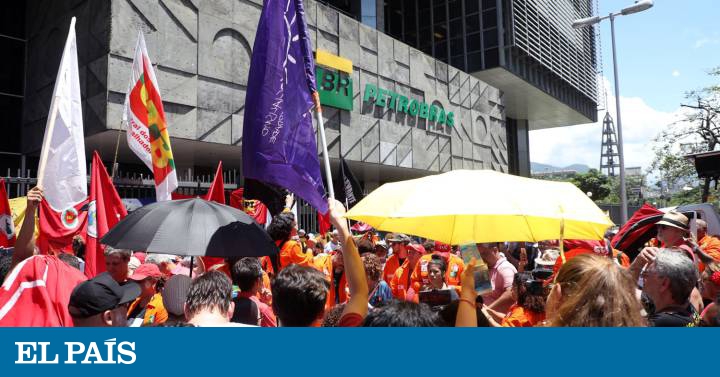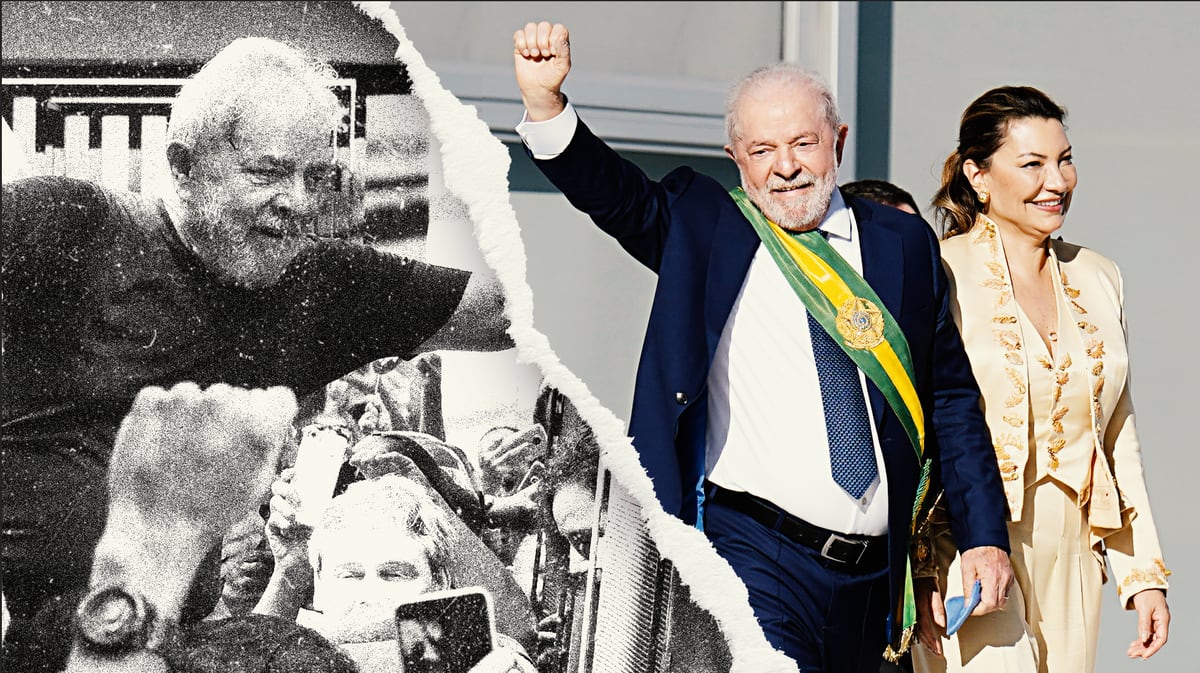MORE INFORMATION
Bolsonaro deepens its privatization commitment with the sale of more than 6,000 million in Petrobras shares
The 'Guedes doctrine' puts Brazil on sale
Jair Bolsonaro, the chief businessman of Brazil
More than 20,000 Petrobras employees - practically a third of the staff of the largest state-owned company in Brazil - already have more than two weeks of strike, a situation that raises the risk of shortages in the South American giant. The strike has overcome all kinds of pitfalls: from the threat by the company of not paying the payroll to employees who do not go to work until a ruling of the Federal Supreme Court (STF) in favor of the oil company, which determined that reestablish the minimum percentage of 90% of employees who have to continue working. But it goes ahead and adds almost three weeks, stopping the activity in 113 plants spread across 13 states of the country, according to data from the FNP, the National Federation of Petroleum Workers. Behind the strike is the request to cancel the dismissals of employees of the Paraná nitrogen fertilizer factory, whose definitive closure has recently been communicated by Petrobras and entails the departure of almost 400 employees, and compliance with the negotiation agreements collective by the company.
Outside the growing pressure, Petrobras remains in its thirteen: it insists that the movement is "out of place" and claims to have taken appropriate measures to ensure the continuity of its activities. According to the company, the centers are operating properly, "with contingency equipment reinforcements when needed, and there are no production impacts to date." The state oil company has been authorized to hire temporary workers to replace those who are on strike and do not rule out importing fuel if necessary to ensure normal supply.
Shortage Risk
Unemployment has raised the risk of not having enough gasoline to supply the huge consumption needs of the largest country in Latin America. Décio Oddone, general director of the National Agency of Petroleum, Natural Gas and Biofuels (ANP), sent a letter to the Superior Labor Court warning about the risk of shortage of fuels by the strike of the workers. In the letter, obtained by the Reuters agency, Oddone states that, although Petrobras has tried to apply temporary solutions and has allocated contingency equipment to the operational facilities, "the situation is moving away from normalcy." So far it has had no impact on the supply. But "but it may occur," says Oddone.
The unions disagree: they believe that the strike does not jeopardize the company's production and consider that Petrobras uses two different speeches to address the issue of shortages based on which one convinces them most.
Protest against the liberal turn in the oil company
Beyond the almost 400 layoffs at the Paraná fertilizer plant, the staff denounces that Petrobras is not respecting the collective bargaining agreement and demands the end of the parity policy with the international market - which the Michel Government launched Fear and adjust the price of gas and gasoline based on the exchange rate and the price of oil in international markets - which, they argue, raises the cost faced by Brazilians.
Petrobras employees also protest against the divestment policy - which involves the closure of plants or the sale of assets to third parties - included in the liberal line applied by the Executive of Jair Bolsonaro. Under the direction of Roberto Castello Branco, the man chosen by the president to take charge of the state oil company, the company has sold assets, some of them outside Brazil and abandoned business lines such as fertilizers. His goal, he says, is to strengthen the balance sheet of a company - which has suffered severe reputational damage due to its involvement in the Lava Jato case - and focus on the exploitation of the vast (and profitable) oil fields discovered in 2006.
Beyond the movements aimed at internal disinvestment, the Government is immersed in a profound policy of exit from the shareholding of companies in which the State participates, including Petrobras. The economic czar of Bolsonaro, the ultra-liberal Paulo Guedes, showed last week that he will follow his plan to reduce the size of the public sector. As far as the ultra-rightist's mandate goes, the State has detached some 6,000 million euros in shares of the oil company, one of the great jewels of the crown that are still in the hands of the public sector. The Executive does not think, at least for now, of privatizing the largest Brazilian state company and one of the world's largest oil companies, in which it still has just over 50% of the capital.





/cloudfront-eu-central-1.images.arcpublishing.com/prisa/MZAOVOYMVFG7HL4MJNE6R4WAIY)
